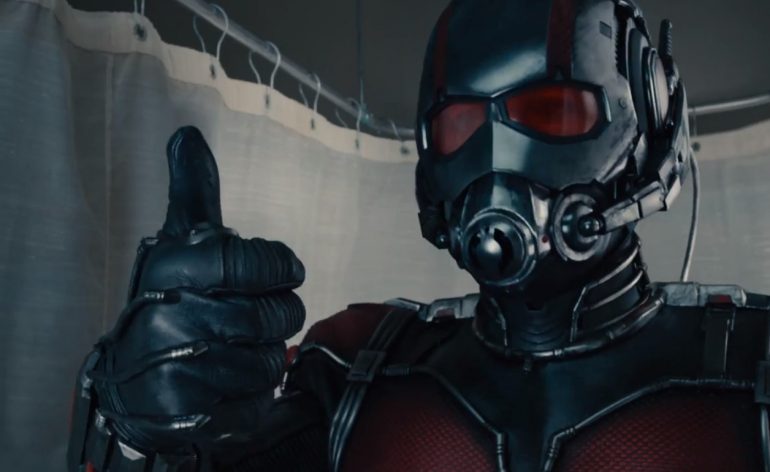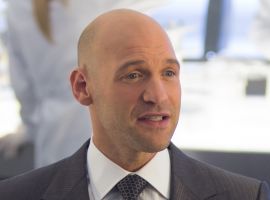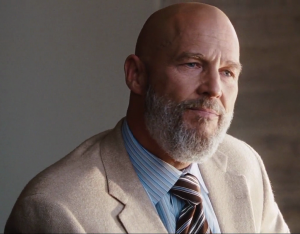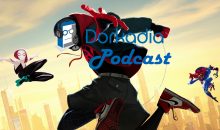Ant-Man and the Consequences of Development Hell
I have a confession: I’m kind of cheating on NaNoWriMo.
Held every November, National Novel Writing Month (NaNoWriMo) challenges writers to write the first draft of a 50,000-word novel in a month. The goal is to come up with new copy daily, writing and writing and writing, not pausing to look back or edit until the word count goal is achieved at the end of the month.
I; however, am not working on a new project. With so many trunk projects on my hard drive, I pulled out an old idea that I had started working on in 1998. In its current form, this novel was at 35,000 words. Now, to keep in the spirit of NaNoWriMo, I’m writing a lot of fresh copy for this novel, because what I’m finding is that a lot of my original ideas need updating. Technology has moved on since 1998. My original plot complication, which revolved around the high cost of color copying, doesn’t make sense anymore. My characters now have cell phones instead of pagers. I have to figure out how to integrate social media into the plot. Toss out all references to newspapers. Many of the 35,000 words I started with have been discarded, which ultimately makes the story stronger and more relevant to today.
I was thinking about my NoNoWriMo project as I watched the final Phase II move in the MCU: Ant-Man. Back in 2006, Edgar Wright (director of Scott Pilgrim vs. The World) came up with a draft for an Ant-Man movie. A simpler time for comic-book movies, 2006-2007 was the era of the crappy sequel (X-Men: The Last Stand, Superman Returns, Spider-Man 3, Fantastic Four: Rise of the Silver Surfer) and no MCU. Had Wright’s Ant-Man been released in 2007, it might have dominated other comic-book movies of the time. Instead, it sat in development hell for close to ten years, as Iron Man established the MCU and Wright worked on draft after draft while other Marvel characters took precedence. When Marvel Studios finally green-lit Ant-Man for a 2015 release, Wright left almost at once over creative differences.
Much has been made of this split, with Wright wanting to create a more standalone movie and Marvel wanting to tie Ant-Man in to the larger MCU. While I appreciate Wright’s desire for creative autonomy, Having watched Ant-Man, I would argue that he was in the wrong. From its inception, the comic-book Marvel universe has always been interconnected, with characters woven through several story arcs at once. It’s one of the core premises of Marvel comic books, and one that has transitioned to movies with the advent of the MCU. To release a movie now that didn’t have some tie to the larger universe would make that movie feel very out of place. The MCU nods added to Ant-Man don’t detract from the overall story, and only serve the MCU metaplot in small ways.
My biggest problem with Ant-Man is its weak villain, a recurring problem for Marvel properties that has been noted many, many times. Yellowjacket is boring. He’s an old, balding white guy businessman, intent on using technology for evil. Sound familiar? That’s because he’s already appeared in an MCU movie, in 2008, when his character was Obadiah Stane (Jeff Bridges) of the first Iron Man.
Just as I’ve had to rewrite the material I initially wrote in 1998 to bring it in line with modern technology, Edgar Wright should have come up with a different villain for Ant-Man back in 2008 with the release of Iron Man, because Cross and Stane are nearly identical. That Peyton Reed didn’t rewrite this part of the movie is my biggest problem with Ant-Man. The visuals are stunning, the dialogue is tight and authentic, the casting perfect. Only the villain feels like a retread, because he is. Reed worked to update the script to make it fit better into the MCU, only he forgot/didn’t have the time or authority to replace a villain that’s been done before.
Ultimately, though, Marvel’s villain weakness is as well-known as M. Night Shyamalan’s plot twists. As much as I want a Marvel villain as fleshed out as the Joker, the movies are more about the heroes. Having a weak villain doesn’t derail Ant-Man, which is a fun movie otherwise. The stakes are never as high as in The Avengers movies, nor do they need to be. Ant-Man is a comfortable origin with some quick dialogue and great casting. It’s worth a watch.
My only hope is that Marvel do a bit more updating when they bring other properties out of development hell. Looking at you, Deadpool.
tl;drs
Quick summary: With Darren Cross close to discovering the secret of miniaturization technology, aging scientist Hank Pym enlists ex-con Scott Lang to become the Ant-Man and break in, stealing the technology so it won’t fall into the wrong hands.
Too many writers? Yes. But a better question is this: to the four writers’ voices harmonize well? And the answer to that question is also yes. Ant-Man is equal parts heist/comedy, so the script revisions don’t feel too much out of place.
Recommended if you like: The lighter MCU properties. While not a comedy per se, Ant-Man is closer to Thor than The Winter Soldier in terms of tone.
Better than I expected? The director trade from Wright to Peyton Reed looks pretty smooth, judging from the finished product.
Worse than I hoped? At this point, Marvel is never going to let Loki die, since he’s the only good villain in the MCU.
Verdict: Pitch-perfect casting and impressive CGI overcomes a weak villain in this last Phase II outing.
Related Reading: How Would Edgar Wright’s Ant-Man Have Been Different?






